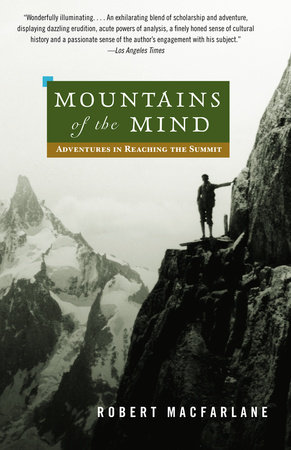 Have you ever been mesmerized by a mountain?
Have you ever been mesmerized by a mountain?
I have … Mount Fuji, from the waters of Suruga Wan, Mounts Rainier and Baker from Puget Sound on a cloudless day, and even Mount Kearsarge in central New Hampshire when I actually climbed it with some of our family.
What is it about mountains that seem to entrance our minds?
Robert Macfarlane, a Fellow of Emmanuel College, Cambridge, gives us a meditation on these heights, an enthralling “mental stimulation that explores why “the unknown is so inflammatory to the imagination.” And why is it that almost every “prophet” of all our religions has ‘habitually been up mountains … to receive divine counsel”?
What is “the mesmerism of high places”? He explains: “ … the urge to explore space – to go higher – is innate in the human mind” and “ … the visionary amplitudes of altitude felt like the approximations of divine sight … the spell of altitude.”
He writes “when we look at a landscape, we do not see what is there, but largely what we think is there … We read landscapes” as interpreted “in the light of our own experience and memory, and that of our shared cultural memory.” In other words, landscapes are “romanticized into being,” mountains most of all.
“Contemplating the immensities of deep time, you face in a way that is both exquisite and horrifying, the total collapse of your present, compacted to nothingness by the pressures of pasts and futures too extensive to envisage … [plus] the appalling transience of the human body.”
Macfarlane’s chapters explore geology, fear, glaciers, heights, maps, theology, and conclude, inevitably, with Mount Everest and the attempt of George Mallory and Andrew Irvine in 1924. The author himself is also a climber as well as a student of mountains.
He cites John Ruskin with the idea that “risk-taking – scaring yourself – was, provided you survived, a potent means of self-improvement.”
“This is the great shift which has taken place in the history of risk. Risk has always been taken, but for a long time it was taken with some ulterior purpose in mind: scientific advancement, personnel glory, financial gain. About two and a half centuries ago, however, fear started to become fashionable for its own sake. Risk, it was realized, brought its own reward: the sense of physical exhilaration and elation which we would now attribute to the effects of adrenaline. And so risk-taking – the deliberate inducement of fear — became desirable; became a commodity.”
Macfarlane concludes, “mountains return to us the priceless capacity for wonder.” He continues, “In ways that are for the most part imperceptible to us, we all bend our lives to fit the templates with which myths and archetypes provide us. We all tell ourselves stories, and bring our futures into line with these stories, however much we cherish the sense of newness, or originality, about our lives.”
Finally, “at bottom, mountains, like all wildernesses, challenge our complacent convictions – so easy to lapse into – that the world has been made for humans by humans.”
So, encourage your doubts and go climb a hill!
Editor’s Note: ‘Mountains of the Mind’ by Robert Macfarlane was published by Vintage Books, New York 2004.

Felix Kloman
About the Author: Felix Kloman is a sailor, rower, husband, father, grandfather, retired management consultant and, above all, a curious reader and writer. He’s explored how we as human beings and organizations respond to ever-present uncertainty in two books, ‘Mumpsimus Revisited’ (2005) and ‘The Fantods of Risk’ (2008). A 20-year-resident of Lyme, he now writes book reviews, mostly of non-fiction that explores our minds, our behavior, our politics and our history. But he does throw in a novel here and there. For more than 50 years, he’s put together the 17 syllables that comprise haiku, the traditional Japanese poetry, and now serves as the self-appointed “poet laureate” of Ashlawn Farms Coffee. His wife, Ann, is also a writer, but of mystery novels, all of which begin in a bubbling village in midcoast Maine, strangely reminiscent of the town she and her husband visit every summer.